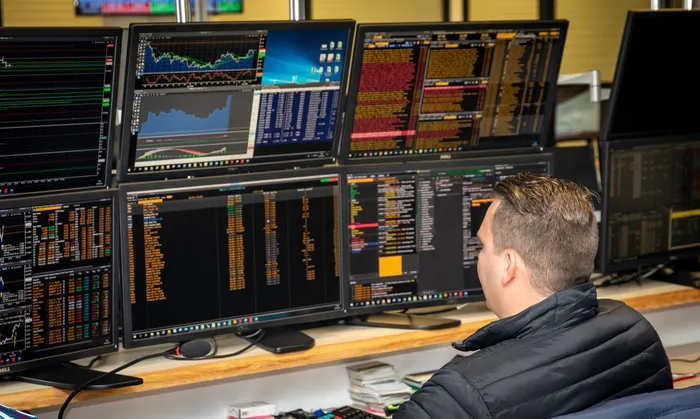Investing in innovation: Should South African hedge funds embrace machine learning?

Hedge funds are often viewed as 'high risk' compared to traditional investments, largely due to the complex instruments they employ, their less restrictive mandates, and their exposure to highly volatile markets where risks can materialize rapidly. Picture: Supplied
Marina Kotsopoulos
In the ever-evolving world of South African hedge funds, where political drama rivals Hollywood and the Rand lives up to its nickname “The Rattler”, it is time to ask: is AI the slick financial genius we’ve been waiting for, or nothing more than this year’s buzzword?
Technological advancements are transforming industries globally, and the hedge fund sector is no exception. The integration of artificial intelligence (AI), machine learning (ML), and fintech innovations is redefining how hedge funds operate, invest, and manage risk. In a complex and often volatile market environment like South Africa, the adoption of these cutting-edge strategies, presents several significant advantages.
A Fast Track to Smarter Decisions
One of the most significant advantages of machine learning in hedge funds, is its ability to analyse vast datasets, uncovering trends and patterns that may be invisible to the human eye. By processing real-time data in seconds from diverse sources—ranging from market indicators and economic reports to social media sentiment—machine learning empowers funds to anticipate market movements and optimize trade timing. The automation of data analysis, not only reduces the reliance on large teams of analysts and traders, but also enhances decision-making and forecasting accuracy, all while lowering operational costs.
A Nimble Approach
Unlike static trading strategies, machine learning algorithms have the ability to learn from past performance and adapt to shifting market conditions. This enables the creation of dynamic trading models that continuously evolve, optimizing strategies to suit the unique characteristics of South Africa’s financial markets, including local economic trends, exchange rate fluctuations, and sector-specific opportunities. By eliminating emotional bias, machine learning allows hedge funds to make decisions driven solely by data and analytical insights. This fosters a more agile and responsive approach, which is crucial for hedge funds operating in the constantly changing South African market.
Risk Management
Hedge funds are often viewed as 'high risk' compared to traditional investments, largely due to the complex instruments they employ, their less restrictive mandates, and their exposure to highly volatile markets where risks can materialize rapidly. Automating the monitoring and review of portfolios, transactions, and market positions to flag potential regulatory violations, significantly reduces the operational risks associated with non-compliance. Moreover, algorithmic strategies can be tailored to mitigate downside risk through tools such as stop-loss orders, dynamic hedging, and other advanced risk management techniques, which are particularly valuable in South Africa’s volatile market environment
While AI holds considerable potential in South Africa, several factors impede its widespread adoption, potentially preventing the industry from fully capitalizing on the global advancements in this transformative technology.
South Africa’s Complex Market
South Africa’s financial markets pose unique challenges, including high volatility, political risk, and currency fluctuations. While machine learning offers valuable tools for managing these risks, the complex and often opaque nature of these market drivers can complicate the development of accurate predictive models. Currently, machine learning algorithms tend to be more optimized for stable, mature markets, making their direct application to South Africa’s more volatile and less liquid markets difficult.
Navigating the Compliance Maze
South Africa’s regulatory framework for the use of AI and machine learning in financial services, is still in development. Hedge funds face navigating uncertain regulations, particularly concerning data privacy, algorithmic accountability, and the role of AI in financial decision-making. The Financial Sector Conduct Authority (FSCA) is actively working to ensure that AI-driven strategies align with regulatory standards. However, potential future regulations -focused on transparency, ethics, and the systemic risks posed by AI models—could introduce additional complexity and costs to the adoption of these technologies.
Building on Shaky Ground
While South Africa has made notable progress in establishing the infrastructure for AI and machine learning, it must address several challenges—including connectivity, skill shortages, and data quality, to fully unlock AI's potential, especially for firms operating outside major urban centres. The country lacks a comprehensive network of localized data centres necessary for large-scale AI deployments. As a result, many cloud-based AI solutions rely on international servers, which can increase latency and raise concerns about data privacy and sovereignty. Compounding these issues, are ongoing electricity supply challenges, which may impede the South African hedge fund industry’s competitiveness in comparison to more developed markets.
While it is still too early for fund managers to become full-time golf enthusiasts, the adoption of machine learning within the hedge fund industry is increasingly becoming standard practice globally. If we can address some of the above challenges through investments in infrastructure, skills development, and regulatory adaptation, there is no reason why South Africa cannot successfully capitalize on the opportunities presented by AI and enhance its competitiveness on the global stage.

Marina Kotsopoulos is a senior business analyst at AG Capital.
Multi-asset income funds are a winner, but make sure your intermediary isn’t ignoring the risks
Surviving volatile market conditions: Insights for savvy investors
Blending in hedge funds to give you the edge
Nedbank state capture feeding frenzy to continue to 2030 if interest rate swops are not set aside, say Transnet and SIU